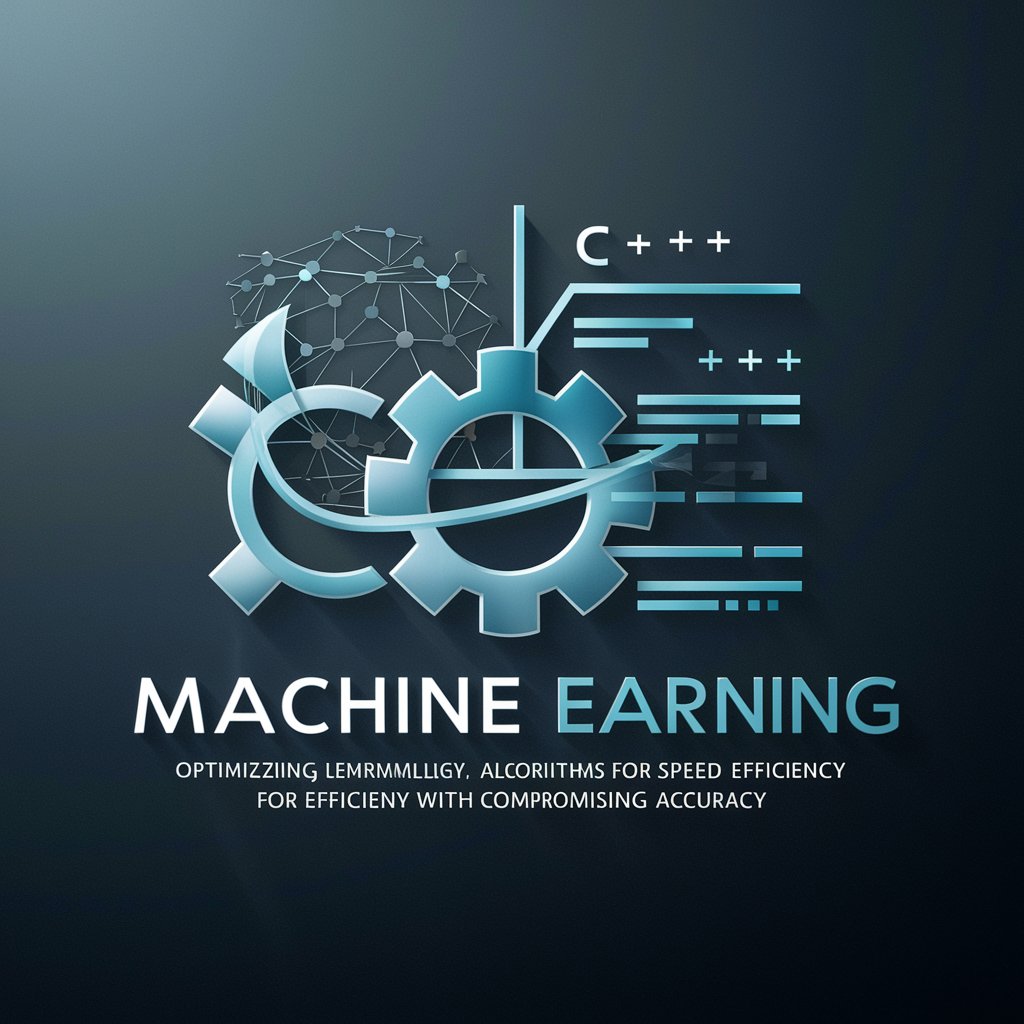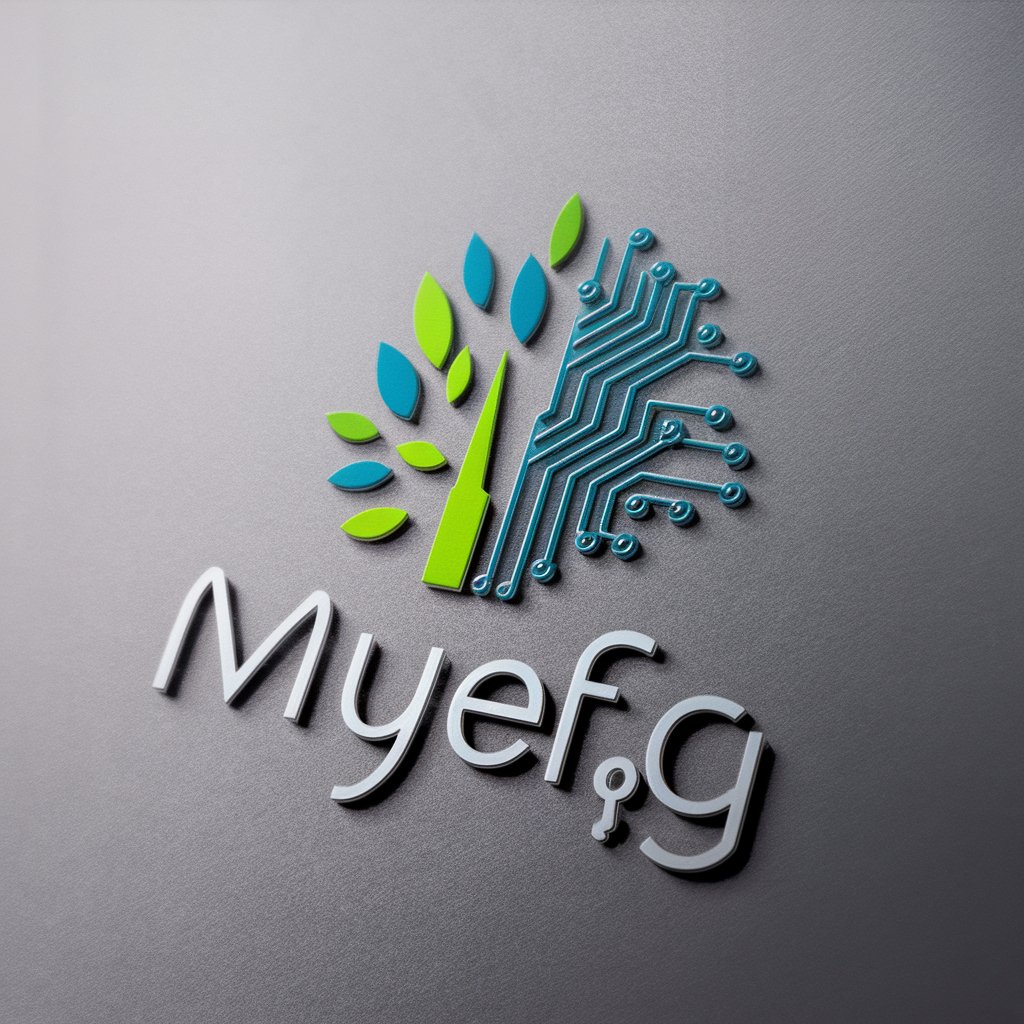Maximizing C++ for Machine Learning Efficiency - C++ ML Efficiency Boost

Welcome! Let's optimize your machine learning code in C++ together.
Optimizing ML algorithms with AI-powered C++ techniques.
Optimize your machine learning algorithms in C++ by focusing on...
Improve the efficiency of your C++ code for machine learning by...
Learn how to enhance the performance of machine learning models using...
Explore advanced techniques for C++ optimization in the context of...
Get Embed Code
Overview of Maximizing C++ for Machine Learning Efficiency
Maximizing C++ for Machine Learning Efficiency is designed to optimize machine learning algorithms for speed while ensuring accuracy, leveraging the power and flexibility of C++. This specialization involves enhancing the efficiency of algorithms through meticulous analysis, code optimization, and applying best practices in C++ programming specific to machine learning applications. It encompasses identifying bottlenecks, optimizing data structures, utilizing parallel computing, and implementing compiler optimizations. An example scenario includes optimizing a neural network's forward and backward propagation steps by employing efficient matrix operations, memory management techniques, and parallel processing to reduce computation time without compromising the model's predictive accuracy. Powered by ChatGPT-4o。

Core Functions and Real-world Applications
Algorithmic Optimization
Example
Refactoring a machine learning model's training loop to use SIMD (Single Instruction, Multiple Data) operations for vectorized operations, significantly reducing the training time.
Scenario
In a scenario where a financial institution uses machine learning for real-time fraud detection, optimizing the algorithm to run faster can lead to immediate identification and blocking of fraudulent transactions.
Data Structure Optimization
Example
Implementing custom, memory-efficient data structures such as sparse matrices for natural language processing tasks, minimizing memory usage and improving cache performance.
Scenario
A text analytics service processing large volumes of data can use these optimizations to handle more data simultaneously, leading to faster insights generation and lower operational costs.
Parallel Computing Utilization
Example
Employing GPU acceleration for deep learning tasks by integrating CUDA C++ code into existing machine learning models to expedite the training and inference processes.
Scenario
In the context of image recognition systems used in autonomous vehicles, leveraging parallel computing can drastically reduce the time taken for object detection and decision-making, enhancing the vehicle's response time.
Compiler Optimization Techniques
Example
Using aggressive compiler optimization flags and profile-guided optimization (PGO) to automatically tune the performance of critical sections of the machine learning codebase.
Scenario
For a predictive maintenance system in industrial settings, this can ensure the model runs at peak efficiency on the specific hardware, minimizing downtime and maintenance costs.
Memory Management Strategies
Example
Implementing efficient memory allocation and deallocation practices, and using smart pointers to manage resources in a machine learning application.
Scenario
In large-scale, real-time analytics platforms, effective memory management can prevent memory leaks and crashes, ensuring smooth and continuous operation.
Target User Groups for Maximizing C++ for Machine Learning Efficiency
Machine Learning Engineers
Professionals who design, implement, and optimize machine learning algorithms, especially those working in performance-critical industries such as finance, healthcare, and autonomous vehicles, would benefit greatly. They require efficient, accurate algorithms that can process vast amounts of data in real-time.
Software Developers in AI
Developers focusing on integrating machine learning models into software applications. They need to ensure that these integrations are not only accurate but also efficient and scalable, making in-depth C++ optimization knowledge invaluable.
Research Scientists
Individuals conducting cutting-edge research in machine learning and artificial intelligence, who need to prototype and test algorithms efficiently. Optimizations can significantly reduce experimental cycles, allowing for faster iteration over models.
Data Scientists
Though not traditionally focused on low-level optimizations, data scientists working in environments where execution speed is critical could leverage C++ optimizations to prototype more efficiently or deploy models directly into production environments.

Guidelines for Using Maximizing C++ for Machine Learning Efficiency
Start Your Journey
Begin by accessing a free trial at yeschat.ai, offering immediate usage without the need for login or subscribing to ChatGPT Plus.
Identify Your Needs
Determine your specific machine learning project requirements, including algorithm speed, accuracy needs, and hardware constraints.
Explore Optimization Techniques
Delve into various C++ optimization strategies provided, focusing on parallel computing, efficient memory management, and algorithmic improvements.
Apply Best Practices
Implement coding best practices, focusing on clean, readable, and efficient C++ code that enhances machine learning model performance.
Benchmark and Test
Continuously benchmark and test your code for performance improvements, ensuring the balance between speed and accuracy is maintained.
Try other advanced and practical GPTs
Handwriting to Text Pro
Transforming notes into knowledge with AI

GIS Pro
AI-powered GIS assistance for professionals.

Insta Tag
Elevate Your Instagram Game with AI-Powered Hashtag Recommendations

myEFG
Empowering Environmental Responsibility with AI

Genealogy Eyes
AI-powered genealogy for modern researchers

Unveiling Insights with C: Advanced Data Analysis
Empowering analysis with AI-driven C programming

OpenCV Visionary Explorer
AI-powered image classification and detection

Story Builder
Craft stories, spark creativity

React NextJS
Elevate Web Development with AI

Environmental Compliance Influence Strategist
AI-driven Environmental Compliance Navigation

JavaScript UI Performance: A Tester's Journey
Enhancing web UIs with AI-driven insights.

CopyWriter
Crafting creativity with AI.

Frequently Asked Questions about Maximizing C++ for Machine Learning Efficiency
What makes C++ suitable for machine learning optimization?
C++ offers close-to-hardware programming capabilities, enabling fine-grained control over memory management and processing speed, which are critical for optimizing machine learning algorithms.
How can I improve the speed of my machine learning models without losing accuracy?
Focus on algorithmic efficiency, leverage parallel computing with C++11 thread library or GPU acceleration, and optimize data structures for cache efficiency.
What are some common pitfalls in optimizing machine learning algorithms in C++?
Common pitfalls include neglecting memory access patterns, underutilizing parallel computing capabilities, and overfitting the optimization to specific hardware.
Can I use this tool for real-time machine learning applications?
Yes, this tool provides strategies for optimizing machine learning algorithms in C++ that can significantly reduce latency, making it suitable for real-time applications.
How does profiling help in optimizing machine learning models in C++?
Profiling identifies performance bottlenecks by measuring where the program spends most of its time or uses most of its memory, guiding targeted optimizations.
